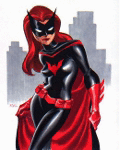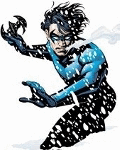Reset Password
Reset Link Sent
| Blogs > lickmelightly > Sugar and Spice |
My curious mind
|
My curious mind Ok my curious mind has been wondering this question for quiet sometime now. Thought I'd throw it out to all you bloggers and see who might know. Oh I suppose you all might want to know what I am curious about. LOL Who or how did the dictionary get started and when? And how is it the words we know got their meanings? Was it someone said "ok this is just going to mean this, and that's that." I did search and this is what I found. It is from a question and answer thing: No one person gets this credit. Samuel Johnson is most often credited with this task, but it's not true - not even he claimed it to be so. One of the earliest known dictionaries - and it's still around - was written in Latin and compiled during the reign of Augustus. The Chinese had a dictionary in the third century B.C. In 1604 Robert Cawdrey created the first English language dictionary and in 1656 Thomas Blount also published a dictionary. Johnson didn't crank his out until 1755. In 1806 the Americans put the British to shame when Noah Webster compiled his dictionary of the English language. It became a best seller and drove the British Philological Society to begin compiling a comprehensive dictionary, which would later become the Oxford English Dictionary. It took more than a century and several different editors to get the thing published in full form. The first edition was actually worked on from 1860 to 1952, though plans went back earlier. The most famous editor was James Murray, a man of working class origins. However, he neither began the project nor saw it complete. He did, however, create a successful methodology for getting the project done. Always be yourself |
|||||||
|
The study of word origins is etymology.
| ||||||
|
I gave out a question and therefore put out what info I found and wanted to see if it was correct or anyone knew different. Who knows maybe that was really the wrong answer. Thanks grimm ill have to check into that Always be yourself
| ||||||
|
Sigh....LIFE as we know it....wonder what fate bestows us in the next 50 or 6o alone...how about 200...wow...look at our past and the last 50...and say things wont change too much... Thanks again FUN
| ||||||
|
| ||||||
|
I came across an online etmology dictionary which is basically a map of the wheel-ruts of modern English. Etymologies are not definitions; they're explanations of what our words meant and how they sounded 600 or 2,000 years ago. It is pretty cool to browse Always be yourself
|
Become a member to create a blog









